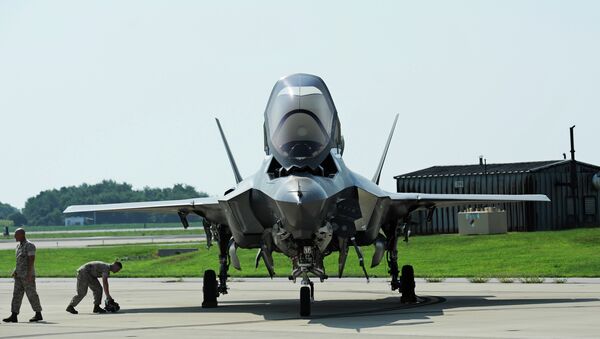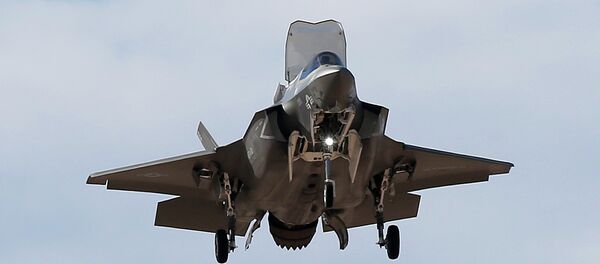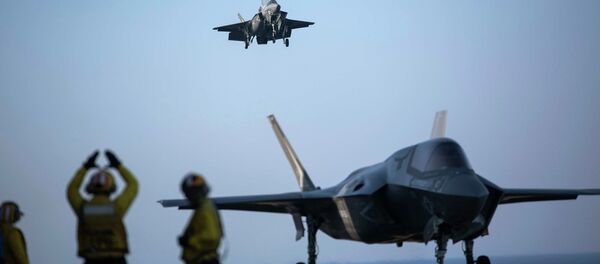The decision was made by Marine Corps Commandant General Joseph Dunford, whose nomination to become the next chairman of the Joint Chiefs of Staff was approved this week, Reuters reported.
"I am pleased to announce that VMFA-121 has achieved initial operational capability in the F-35B, as defined by requirements outlined in the June 2014 Joint Report to Congressional Defense Committees," Dunford said in a statement.
The clearance marks a key milestone for the $391 billion F-35 program, which ran into years of cost overruns and schedule delays. It also makes the Marines the first US military service to declare an "initial operational capability" of the F-35.
The F-35B model – one of three designs of the multi-role fighter in development since 2001 – can take off from shorter runways and land like a helicopter.
"The F-35B's ability to conduct operations from expeditionary airstrips or sea-based carriers provides our nation with its first fifth-generation strike fighter, which will transform the way we fight and win," Dunford said in the same statement.
The Marine Corps plans to send the first squadron of operational F-35B jets to Iwakuni, Japan, in January 2017, Reuters reported. The Marines plan on buying 420 total F-53 jets, a mix of 340 B and 80 C models.
Although the jets have been declared operational, they are not in their final form. More capability, including the use of the plane's gun, will come down the line with software update 3F, which will drop in 2017, Defense News reported.
At a total cost of more than $1 trillion, the F-35 Joint Strike Fighter is the most expensive weapons program in the Pentagon's history.
The F-35B, specifically, received a redesigned fuel tank to prevent potentially explosive interactions of oxygen and gasses. Further tests, however, showed that the redesigned system had problems in aircraft integration that would require further hardware and software modifications.
At one point, the aircraft was vulnerable to lightning strikes when forced to fly twice in a 12-hour span. The B model also had trouble carrying out attacks at certain angles during intense aerial conditions due to degradation in the flight control system as missions progressed.




